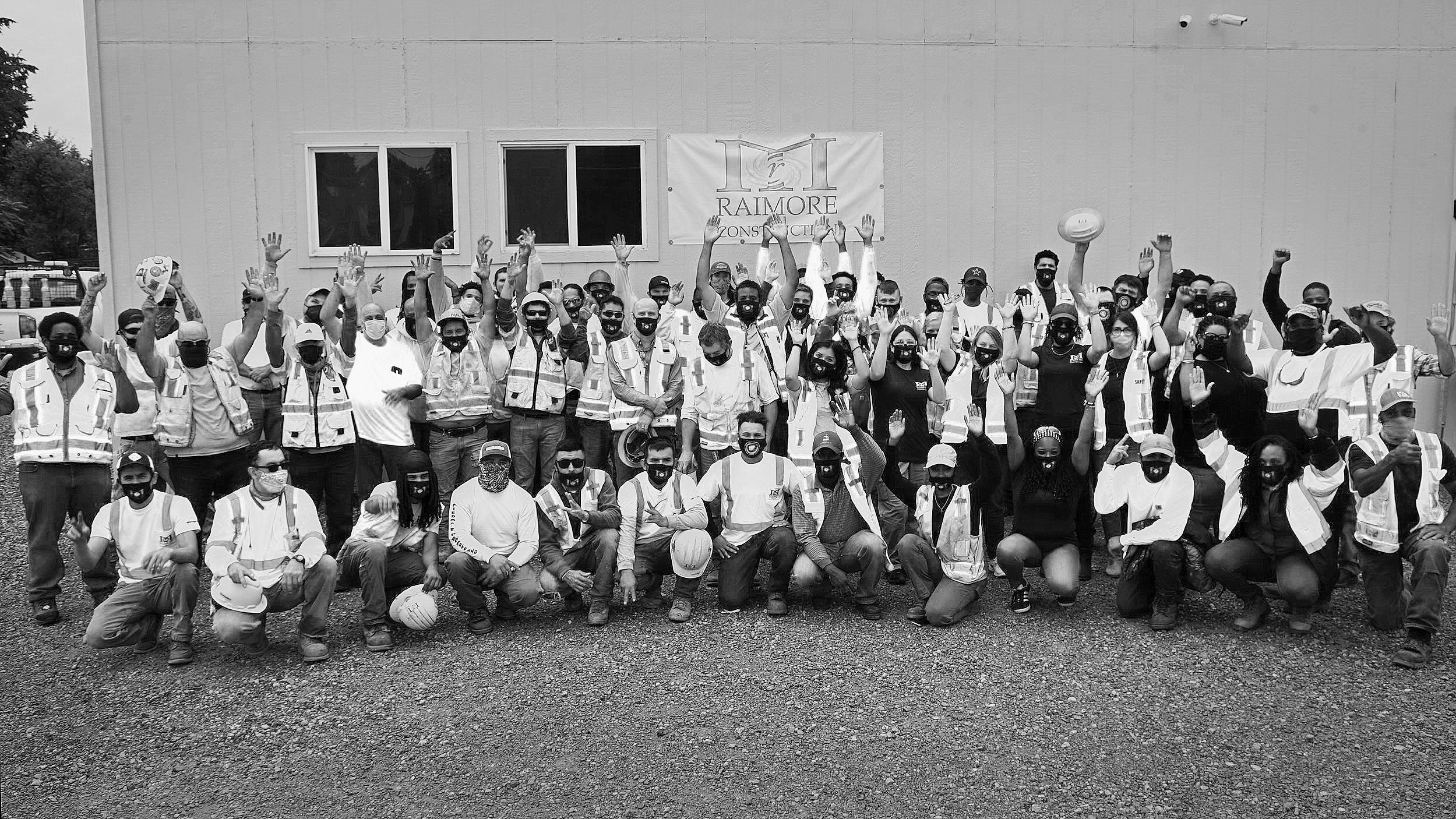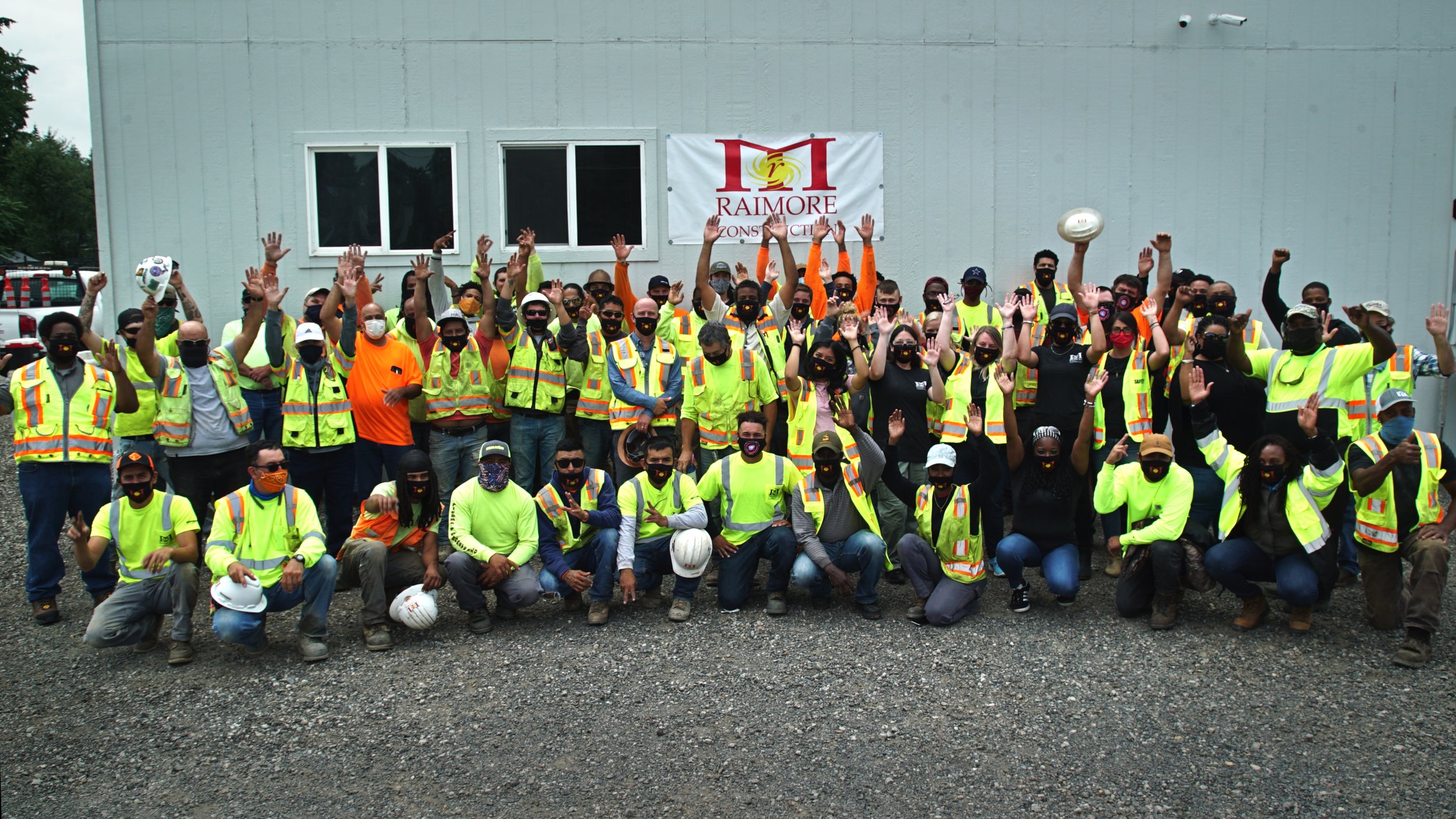A Kingdom-focused business must have certain attributes that manifest a “win, win” outcome for all stakeholders.

Centering around Portland, Oregon-based Raimore Construction, these personal stories captured on film aim to offer meaningful inspiration to those seeking God’s Kingdom through pursuing economic empowerment for marginalized people.
Part 1: People
Employees must be able to connect their work to the search for meaning in their own lives.
Skills.
Slave labor gave way to exclusion, as White unions took control of the construction industry. Deangelo now sees a “renaissance” (rebirth) within his community of the skills that they once used to build America.
Stability.
The stability of a living-wage job offers Turon a life without fear of a future cut short or a soul sold out, plus a new perception of self and an alternate path then the one he was shown as a child.
Experience.
With incarceration endemic in his community, Terrance builds on the trust shown to him to help others find a path to freedom and redemption within a culture where lived experience is an asset rather than a burden.
Growth.
In a mission centered workplace, Employees are celebrated and growth opportunities abound. within a true Kingdom culture of mentorship, growth is encouraged Even when that means leaving the company to pursue kingdom goals.
Connection.
Having experienced the empty tokenism of diversity quotas, Crystal has a deep appreciation for the opportunities and support she experiences as part of a functioning body where meaningful connection is fostered.
Part 2: Purpose
Distinguishing between necessity and purpose is essential for a Kingdom-focused business. It is a necessity that a business makes a profit, but it’s purpose is the common good. Flourishing requires everyone in an organization to have a clear sense of purpose.
Intentional.
A boyhood dream that his work might positively affect people comes to fruition for Tayo as he finds his purpose in construction. He centers intentionality as a building block for justice and community.
Trailblazing.
Helping others into construction careers that can build wealth, without the burden of college debt, has given Jeff Jr. a sense of purpose. He acknowledges the hard groundwork that has built the opportunities he and his community now benefit from.
Generous.
While receiving professional development, Tyrone is also given the explicit message that he is free to take his new-found skills back to his Dad’s trucking company or anywhere he chooses. Freed from a scarcity mindset, Raimore finds ways to support and grow other businesses.
Rooted.
Led to change the foundational purpose of Raimore, Jeff outlines the return on investment (R.O.I) that comes from putting people before profits.
Part 3: Vision
Traditional models of charity can tend toward fostering longterm dependency and unhealthy power dynamics. Economic empowerment offers autonomy and sustainability for communities. Building new habits requires embracing Kingdom practices and the perspectives of marginalized people.
Forgiveness.
Lamenting gentrification, Larry takes aim at benevolence that disempowers, and a lack of equitable capitalization for Black-owned businesses and developers. For communities to flourish, God must break old habits in both dominant culture and marginalized people groups. But forgiveness comes first.
Representation.
Mentorship helps builds a foundation of positive self image in young people while the economic engine of business offers positive representation and gainful employment. Both Eric and Jeff ultimately seek self-determination for the community as a whole.
Narrative.
Since the day he was born, Tony has been overcoming limiting narratives about himself, his family and his community. Politics, and even benevolence, can give cover to inequity and injustice. Tony believes the only solution is a Kingdom-based business model centered around respect, love and grace.
Intergenerational.
Godfather to the generation now seeking economic empowerment for their community through the construction industry, James outlines a veteran’s perspective. But age-old tactics of the enemy may leave the next generation of social-justice-focused youth separated from the wisdom of their elders.
